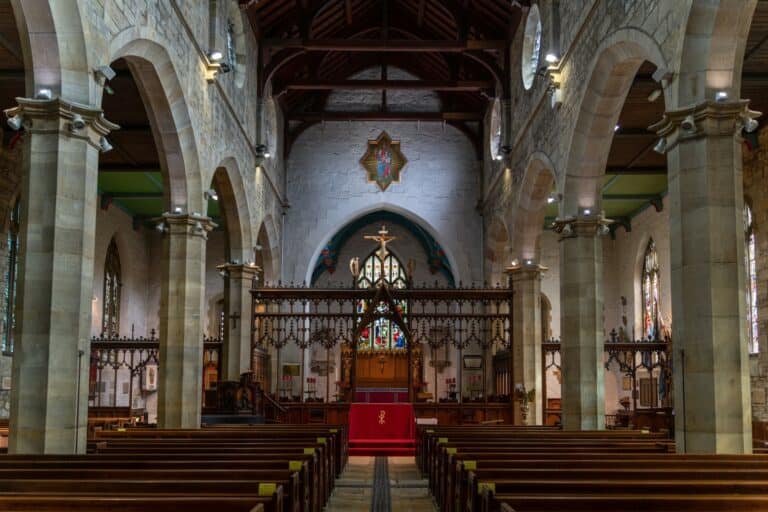Tackling Modern Slavery
“More than 200 hundred years ago the British House of Commons passed historic legislation to make the slave trade illegal. But sadly, the grim reality today is that slavery still exists in towns, cities and the countryside across the world. And be in no doubt, slavery is taking place here in the UK.”
Theresa May, HM Government – Modern Slavery Strategy
Three weeks ago I was fortunate to attend a lecture together with colleagues from the Bolt Burdon Kemp abuse team by former Court of Appeal judge, Baroness Butler-Sloss, on the topic of modern slavery and human trafficking.
Baroness Butler-Sloss’ lecture highlighted the seriousness and prevalence of this issue within modern society and the devastating psychological impact of trafficking and labour exploitation experienced by its victims. Baroness Butler-Sloss also spoke of the efforts she has spearheaded to prevent modern slavery and trafficking and to help and support individuals who have been affected by modern slavery.
It is clear that to tackle modern slavery a multi-faceted approach is needed with authorities looking to identify and support the victims of trafficking as well as targeting and punishing criminals who traffic others and preventing trafficking at its source. Whilst the efforts of Baroness Butler-Sloss and others are a brilliant start, I am sure she would agree that there is still much work to be done if modern slavery is to be effectively dealt with.
The lecture was organised by Godolphin and Latymer School in Hammersmith, West London, as part of their Public Lecture series and a great deal of credit should go the school for arranging such an interesting speaker and shining a spotlight on an important and thought provoking social issue.
Modern Slavery
Modern slavery is a serious and pressing issue which affects millions across the globe. The 2016 Global Slavery Index estimated that worldwide almost 46 million individuals are trapped in some form of slavery. In 2012 the International Labour Organisation estimated that there were 21 million individuals carrying out forced labour or working in jobs into which they were co-erced or deceived and which they cannot leave. This of course raises the possibility that despite best efforts incidences of modern slavery are unfortunately on the rise.
Whilst it is tempting to think of slavery as an issue which has been eradicated in developed democratic societies, this is simply untrue. In December 2015, the Home Office estimated that there were between 10,000 and 13,000 individuals living as slaves in the UK. This figure is supported by the Global Slavery Index which estimates that there are approximately 11,800 slaves living in the UK.
Baroness Butler-Sloss’s lecture highlighted the way that individuals are trafficked into the UK from across the globe to carry out many different forms of forced labour. Research indicates that the top 4 countries from which individuals have been trafficked into the UK are Nigeria, Albania, China and Vietnam. Once inside the UK trafficked people are being put to work in diverse fields including:
- Forced prostitution
- Forced labour in industries such as construction, catering and agriculture
- Car washes
- Nail bars, and
- Cannabis farms
Victims of trafficking are by definition extremely vulnerable. They may have a limited grasp of English and little knowledge of their whereabouts. They may also have little or no access to money or means of communication such as mobile phones. Victims of trafficking are often reluctant to speak to authorities or seek help and support due to fears about what might happen to them. Additionally, traffickers will often hold victims’ ID documents and be able to target and intimidate victims and their families both in the UK and abroad.
One of the truly shocking anecdotes to arise from Baroness Butler-Sloss’ lecture was the prevalence of modern slaves trafficked to the UK to work as domestic servants for foreign diplomats and in foreign embassies. In cases such as these there is a very obvious power imbalance between the perpetrators of trafficking and the victims which inevitably serves to increase the vulnerability of victims. Unfortunately, due to diplomatic immunity authorities have found it difficult to bring these perpetrators to justice.
Modern Slavery Act 2015
As a trustee of the Human Trafficking Foundation and a member of the All Party Parliamentary Group on Human Trafficking and Modern Slavery, Baroness Butler-Sloss has been at the forefront of efforts to combat the issue of modern slavery for a number of years.
Baroness Butler-Sloss sat on the Modern Slavery Bill Review Panel together with current and former Members of Parliament, including Frank Field and Sir John Randall, and helped to draft the Modern Slavery Bill which was eventually passed into law in 2015 as the Modern Slavery Act. In drafting the Bill, the panel consulted with NGOs, campaigners, frontline professionals and academics as well as individuals who had experienced modern slavery firsthand.
The Modern Slavery Act consolidated previous legislation and introduced a number of new provisions.
The Act:
- Increased the maximum sentence for those found guilty of trafficking and modern slavery offences to life imprisonment.
- Introduced prevention and risk orders to allow courts to place restrictions on those involved in trafficking and modern slavery (e.g. confiscating passports).
- Established the role of an Independent Anti Slavery Commissioner to encourage good practice on the prevention of modern slavery and the identification of victims. The current Independent Anti Slavery Commissioner is Kevin Hyland.
- Created a new statutory defence for the victims of trafficking and modern slavery where they have been compelled to commit criminal offences in connection with their situation.
- Extended the possibility of granting special measures to victims of trafficking and modern slavery (e.g. giving evidence behind screens) when they are giving evidence in court.
- Established child trafficking advocates to work with and support trafficked children and help to prevent them from returning to slavery.
- Requires businesses with turnover of more than £36 million per annum to publish an annual statement confirming the steps they have taken to ensure that human trafficking and slavery is not taking place within their business or supply chain.
A review of the Act in 2016 found that 289 offences were prosecuted under the Act in 2015 and there was a 40% increase in victims being referred for support. Whilst this obviously suggests that the Modern Slavery Act was having an immediate impact, Anti Slavery Commissioner Kevin Hyland suggested that offences remained under-reported and investigated.
What’s next?
I have a number of suggestions for the next steps in tackling modern slavery and assisting victims:
- It is imperative that authorities continue to investigate and prosecute offences of modern slavery and trafficking. Whilst progress has undoubtedly been made in that an increasing number of people are being prosecuted for modern slavery offences and more victims are being assisted and supported, the prevalence of modern slavery appears to be rising. It is important that prosecutions serve as a deterrent to criminals and that the courts use the full extent of their sentencing powers when sentencing criminals who traffic others. Figures from around the country show a great disparity amongst police forces in the number of investigations and prosecutions. It is important that consistency amongst forces is promoted to remove safe havens for traffickers.
- The Act currently provides that only businesses with turnover of more than £36m per year must publish an annual anti-slavery statement. In my opinion this is insufficient. It is important that a wider range of companies should produce anti-slavery statements setting out the steps they have taken to ensure that human trafficking and slavery is not taking place within their business. This is particularly critical in high risk industries such as construction, catering and agriculture. It is also crucial that statements be properly audited and verified.
- Victims of trafficking and slavery often experience severe psychiatric injuries such as post-traumatic stress disorder as a result of their experiences. It is crucial that individuals affected by trafficking are able to access specialist long term support and treatment to rehabilitate them and treat their symptoms. A civil claim for compensation against the perpetrators of trafficking may enable victims to obtain funds to access specialist treatment which is otherwise not available to them. Under current legislation, civil legal aid is not available to the victims of trafficking and modern slavery. Civil legal aid should be extended to all victims of trafficking and modern slavery to pursue claims for compensation against the criminals who trafficked them and the companies that benefitted from their forced labour. This would remove a significant barrier to justice for those affected by modern slavery.
I commend the efforts of Baroness Butler-Sloss and others for their work in introducing an important piece of legislation which has the potential to help tens of thousands of people in the UK and throughout the world.
It is now important that we build on this legislation and keep up the momentum to continue to tackle this issue.










